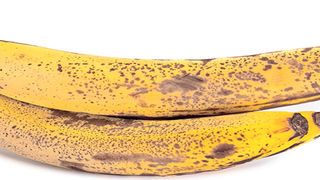
Banana is the most ripened and consumed fruit in Kenya and to produce high quality ripe bananas, caution must be taken to avoid blemishing during harvesting and post-harvest handling, principally during transportation and cutting. FILE PHOTO | NMG
|Mombasa
Premium
How unscrupulous food traders are exposing Kenyans to cancer
People are hastening the maturing of food products to make them look more appealing, exposing Kenyans to cancerous chemicals, Mombasa County Public Health Chief Officer Pauline Oginga has warned.
But Ms Oginga, a nurse, cited lifestyles as the main contributing factor in rising cases of cancer.
The pressures of the market and economic demands, she warned, had pushed some people into using new methods to accelerate the growth of food products or to make them look more appealing.
“Are we eating cancer on our table? Look at the agricultural system...Some years back we were not using so many chemicals in our farms, both for crops and animal feeds,” she said.
“Food is a predisposing factor. The obesity rate in Mombasa is very high. Our data shows women are at 51 per cent prevalence.”
Ms Oginga cited the use of mosquito nets to fence kitchen gardens as another factor exposing agricultural products to chemicals.
“You walk around and you see people have fenced their kitchen gardens using mosquito nets that have chemicals. When it rains, all these chemicals are drained into those farms and it is consumed. There are many risk factors,” she warned.
Cancer, she said, is costly to treat and Kenyans make matters worse with their bad healthcare-seeking habits.
“We go to the hospital when we are sick. We first try treating ourselves at home,” she said, adding that late diagnosis of cancer results in people spending millions of shillings on treatment because the disease is detected in its late stages.
She advised Kenyans to go to hospital for routine medical checkups. She expressed her disappointment that Kenyans were resorting to herbal treatments and undermining their health outcomes.
Breast cancer has been on the rise in Mombasa since 2018, data shows.
In 2020, some 138 patients were diagnosed with breast cancer, while 95 had cervical, 62 prostate and 62 oesophagus cancer.
“If you look at the total cumulative figures in 2018, we had around 5,800, then it went down to 4,700 last year,” Ms Oginga said.
“We still have issues with reporting cancer cases. Mombasa County serves the entire Coast region when it comes to cancer.
Our cancer centre at Coast General Teaching and Referral Hospital is always packed daily.”
The county screens women for cancer in antenatal, postnatal and family planning clinics, Ms Oginga said in an interview
“If you look at predisposing factors for cancer, tobacco is leading, (followed by) age and obesity, among others. Our interventions include … HPV vaccination for girls below nine years and we are also sensitising people on cancer,” she said.





